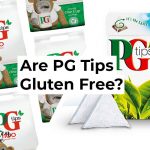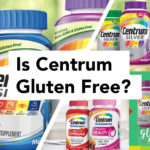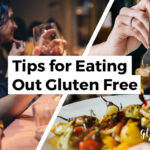Maintaining a healthy diet as a coeliac is not only important, it’s essential. Years of consuming gluten as a coeliac causes irreparable damage to the gut. This makes nutrient absorption far more difficult than in non-coeliacs and can lead to further health problems later down the line if not meticulously cared for by the patient.
In this post we’ve put together a handful of essential health tips that will hopefully help you understand the impact coeliac disease can have on the gut, and the ways you can counteract its effects.
Regardless of whether you’re diagnosed with coeliac disease or non-coeliac gluten sensitivity, these essential health tips are cross-compatible and will have a positive effect on your overall health.
So let’s get on with the show…
1. Avoiding Gluten is a Lifelong Task
Unfortunately there is currently no cure for Coeliac disease.
Every month new research is published that helps the Coeliac community to better understand the condition, however to date we still have no cure.
This means that avoiding gluten is a lifelong task. The sooner you learn this, the better for both your physical and mental health.
For many people, being diagnosed as Coeliac can come as a huge shock. At the time of diagnosis, most coeliacs have enjoyed decades of eating foods like bread and pasta. To be told “no more” can require a very large and difficult shift in lifestyle habits.
This shift can be too overwhelming for some people and instead of completely removing gluten from their diets, they opt to “minimise” consumption instead.
Unfortunately by continuing to consume gluten rather than completely removing it from your diet, you will continue to cause serious damage and inflammation inside your gut.
The sooner you remove all sources of gluten, the sooner your gut will begin to heal. Once your gut has “healed” and the symptoms of coeliac have subsided, it does not mean you can return to eating gluten-containing foods.
The moment you indulge in gluten-filled food, you will undo all your hard work.
Avoiding gluten is a life long task if you want to be and stay healthy as a coeliac.
2. Your Gut is in Recovery
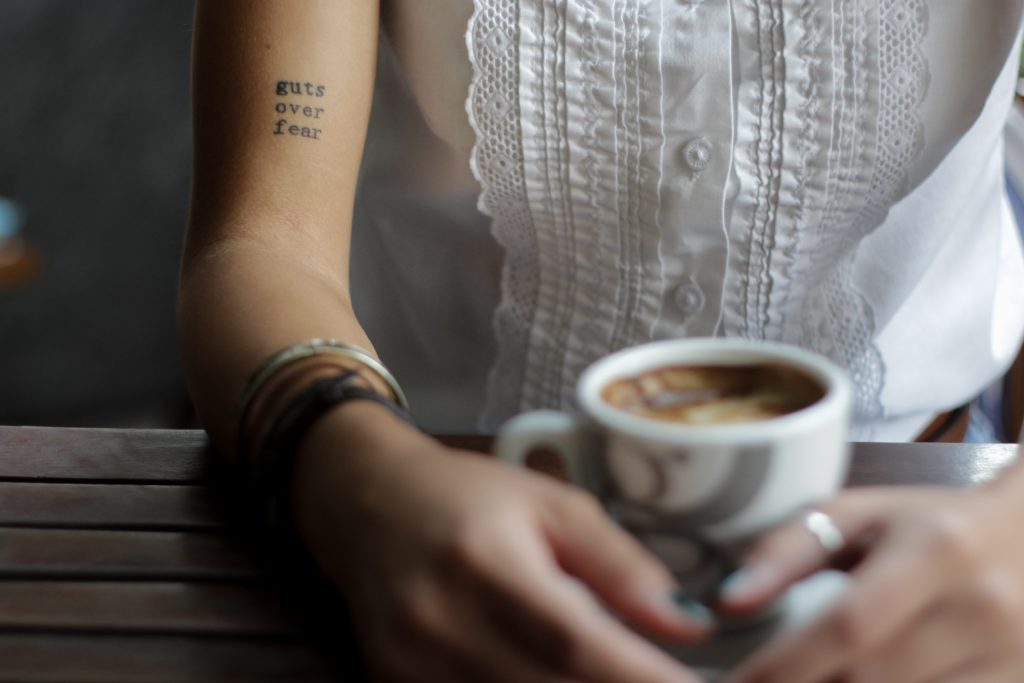
After being diagnosed as coeliac, your gut will take may years to heal. Through this process of healing, the symptoms of coeliac disease can continue to present themselves, even when no gluten has been consumed.
Furthermore, for a significant number of coeliacs, the gut never completely recovers to full health and will always provide some degree of discomfort and inconvenience.
Why is this a health tip? Because being acutely aware of your physical state can help you to monitor the effects of the food you put into your body.
3. Just a Bite WILL Hurt
“Just one bite”.
When I was first diagnosed with Coeliac disease, I said these words more than I care to remember.
In fact, for several years after being diagnosed, I would, on occasion, take just one bite of cookies or cakes or other treats that I dearly missed.
Making the lifestyle shift from gluten to gluten-free can be so difficult, especially when you miss your favourite foods, that giving in to a small bite here and there seems like it’s only being fair to yourself.
I would tell myself that one small bite wouldn’t hurt or that my gut is healthy enough to handle it. I was wrong.
The truth? Within the hour I’d be doubled over in pain. My stomach would burn within minutes and 24 hours later I’d be itching with eczema.
It took me a while to finally learn the lesson that even the smallest amount of gluten can have damning effects on my body.
As I’ve already already pointed out in sections #1 & #2, avoiding gluten is a lifelong task, and with an already-damaged gut, even the tiniest gluten exposure can result in drastically amplified symptoms.
We are only human, and it is ok to make mistakes. But you’re a fool if you don’t learn from those mistakes.
You’ve already put so much hard work into removing gluten from your diet and healing your gut. Is it worth giving up all that hard work for just one bite?
4. Learn to Cook
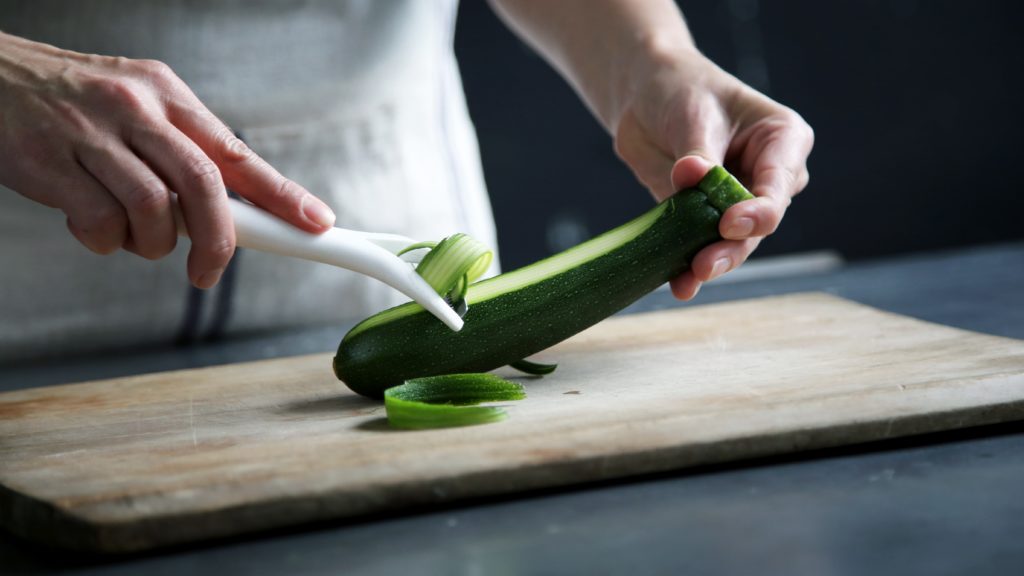
Learning to cook will improve your life & your health. Period.
Regardless of whether you have coeliac disease or not, learning to cook is a surefire way to begin living a healthier lifestyle by eating healthier and more nutritious food.
If you’ve followed any of my other articles, you may already know that I regularly advocate eating a purely natural diet.
We all know that processed foods are bad for us, we’ve been hearing it for years. So why do so many coeliacs load up on processed gluten-free junk?
In my opinion, gluten-free alternatives should be approached as “treats” and consumed very infrequently. Gluten-free alternatives are loaded with unhealthy sugars and food additives that we wouldn’t normally put into our bodies if we weren’t coeliacs. They’re also calorie dense but include very little (if any) nutrition. Not to mention they taste like cardboard.
On the other hand; fruit, vegetables, meat, fish and poultry are all naturally gluten free, highly nutritious and filled with everything our diets could need.
Taking the the time to learn how to cook and planning a healthy and nutritious diet is essential if you want to lead a healthy life. There is no shortcut, especially if you have coeliac disease.
Remember, you gut is already severely impaired. In order to extract the nutrients you require, you need to give your gut a head start by feeding it fresh, healthy and nutrient dense foods.
Did I mention cooking is fun?
5. Support Your Gut With Supplements
Obtaining all the vitamins and minerals your body needs is easily achievable with a healthy and nutritious diet. And whilst a purely natural is ideal, it’s important to be acutely aware of your body’s condition.
As we’ve already outlined in this article, your gut is damaged and in recovery. A gluten-damaged gut can not absorb nutrients from food as easily or efficiently as a healthy person’s gut.
This is where supplements can help. Vitamin and mineral supplements are an easy and cost-effective way to help top up your immune system and give your gut a helping hand.
Multivitamin & mineral supplements are cheap and widely available.
It is important, however, that you continue to eat a healthy diet and only use supplements to top-up your intake of vitamins and minerals. The clue is in the name: supplements are designed to supplement your diet and are not designed to be your sole source of nutrients.
6. Learn About FODMAPS
Ever had your symptoms flare up even though you’re 100% sure you haven’t eaten any gluten? FODMAPs could be to blame.
In your quest to learn more about healing your gut, you may have stumbled across FODMAPs or been recommended following low-FODMAP diet plans.
FODMAPs are types of food. More specifically, they’re short-chain carbohydrates which your gut finds difficult to digest. FODMAPs are known to cause inflammation in the body and produce symptoms similar to coeliac disease and gluten sensitivity.
Why is it important to learn about FODMAPs?
Whilst your gut is in recovery, you’ll be more sensitive to any type of inflammation in the gut. But more importantly, you could be living in additional pain unaware that a FODMAP food source is the cause.
All too often I hear this same story from people suffering with coeliac disease and gluten-sensitivity: their symptoms reduce after switching to a gluten-free diet, but don’t fully heal.
Oftentimes in situations like this, the person is also sensitive to another inflammatory food source. By switching to a low FODMAP diet, not only will you help the gut heal quicker, but potential inflammatory foods will also be easier to identify.
Only being aware and cautious of gluten containing foods can result in missing other food products your body is also sensitive to.
Taking time to learn about FODMAPs can help you to better diagnose whether gluten-exposure was responsible for a symptom flare-up, or perhaps something else.
What are your health tips?
One of the toughest things about gluten-sensitivity is the wide range of symptoms and ways in which it affects people. Some sufferers react to gluten with light stomach aches whereas others may experience seriously debilitating cramps.
Everyone is different and we all have our own ways of keeping healthy.
So I’m interested to know, what do you to stay healthy whilst avoiding gluten? What do you do to keep your gut in its best condition?
Let us know in the comments below and share your experiences with the community – you never know who you might help!

